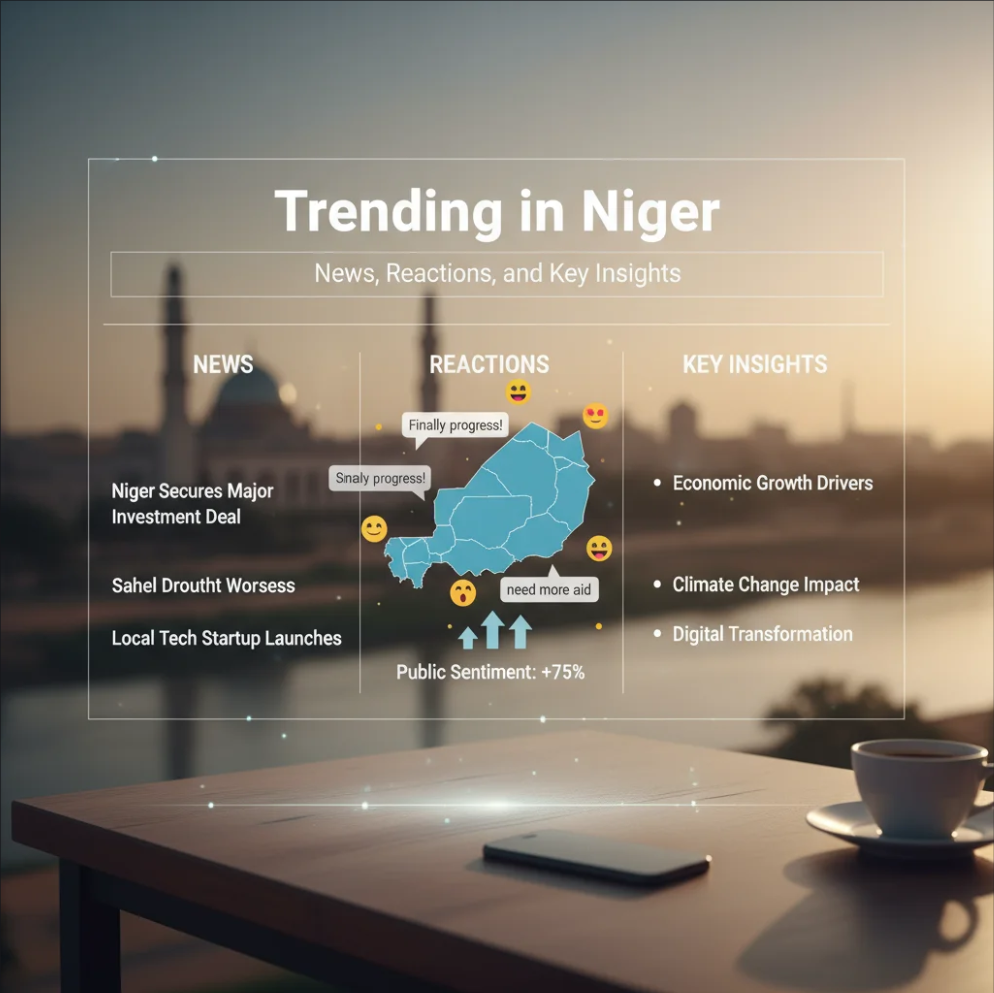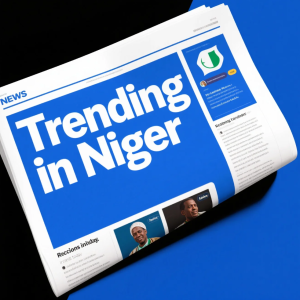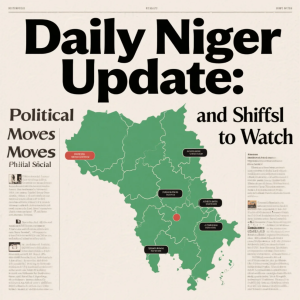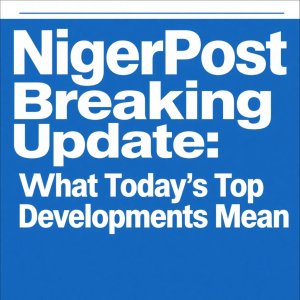1. Transition & Power Consolidation
Abdourahamane Tchiani, leader of the 2023 coup, has been sworn in as President under a new transition charter that replaces the national constitution. He has also been promoted to full General.
- All political parties were dissolved as part of this transition. The transition is set for five years, though it’s described as “flexible,” allowing possible changes depending on security or other crises. allAfrica.com+2International IDEA+2
2. Nationalization of Key Resources
- Niger has moved to nationalize the Somair uranium mine, which had been partly run by the French company Orano. This is part of a broader push to assert more national control over natural resources. Financial Times+1
- The union of uranium mine workers (SYNTRAMIN) is backing this decision and says production will continue. Orano is disputing the move and considering legal action. Reuters+1
3. Security & Insurgency Escalating in Regions
- Several attacks by militant groups have recently shaken Niger, especially in the Tillabéri and Tahoua regions:
• A major ambush in Banibangou killed dozens of soldiers. Wikipedia
• In Eknewane (Tahoua), over 60 soldiers were killed in a militant attack. Wikipedia
• A mosque attack in Fambita, Kokorou, Tillabéri, left dozens dead. Wikipedia
4. Human Rights & Civil Liberties Under Pressure
- Human rights observers say civic space has significantly shrunk under the military regime. There are reports of arbitrary arrests, restrictions on media, limited political freedoms, and ongoing detention of former officials. Devdiscourse+3allAfrica.com+3International IDEA+3
- Former President Mohamed Bazoum remains detained. His detention, along with allegations of mistreatment and lack of access to legal counsel or family, has drawn criticism locally and internationally. allAfrica.com+1
5. Migration & Border/Regional Tensions
- NGOs are raising alarm over mass expulsions of migrants from Algeria into northern Niger via desert routes. Thousands have been sent back, including vulnerable people, and reception centers are overwhelmed. Le Monde.fr
- Niger’s trade and diplomatic relationships have been strained, particularly with ECOWAS (the West African regional bloc), due to political disagreements and shifting foreign policy alignments. Vanguard News+2International IDEA+2
💬 Reactions & What People Are Saying
- Many Nigeriens express support for the nationalization of uranium and resource sovereignty — seeing it as rectifying long-standing inequities with foreign companies. But uncertainty remains over how benefits will translate into improved infrastructure, healthcare, or livelihoods.
- Civil society and international observers worry about the extended transition period and the dissolution of political parties, arguing this weakens democratic accountability.
- There’s growing concern about security: both military losses and civilian casualties are fueling public fear, especially in regions bordering Mali and Burkina Faso.
- Migrants’ rights groups and NGOs are vocal about the humanitarian costs of mass expulsions and the treatment of refugees.
🔍 Key Insights & What to Watch
| Key Issue | Implication / Why It Matters |
|---|---|
| Transition Period Length | A longer transition means military rule entrenched longer, raising questions about democratic restoration and human rights guarantees. |
| Natural Resource Control | If managed well, uranium nationalization could lead to large revenue and leverage. But mismanagement or conflict could undermine gains. |
| Security Challenges | Without improved security (military, intelligence, local coordination), attacks will likely continue — destabilizing regions and draining national resources. |
| Human Rights Constraints | Suppression of political parties, media, and opposition may lead to increased internal dissent, possibly radicalization or unrest. |
| Regional Diplomacy & Economic Isolation | Exiting ECOWAS and frictions with former partners may reduce trade, foreign aid, and external investment — impacting jobs and growth. |




